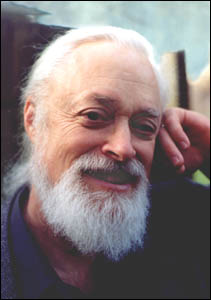A converstion is developing that will lead to a taxonomy for collective intelligence in all its forms, including public intelligence. Below is a first effort by Tom Atlee that decisively corrects our preliminary conclusion that public intelligence was the umbrella term.

Dear Robert,
I guess I'm stuck on what seems to me the straight-forward simplicity of “collective intelligence” as the overall category — as the intelligence capacity of any collective — family, group, organization, community, society, culture, network — they're all collectives (at least in my sense of the word). “Intelligence capacity” includes things like problem-solving, pattern recognition, analytic or integral model-making, learning (knowledge-building and revision), application of knowledge, insight, etc. — anything and everything having to do with engaging successfully with the patterns of reality. The different types of intelligence have diverse gifts to offer — different types of cognition needed to deal with certain types of patterns — e.g., Gardner's seven “multiple intelligences” (including emotional intelligence), on the one hand, or “business intelligence” and “street smarts” on the other. In this definition, at this level, I find “collective intelligence” to be totally embracive of the requisite diversity, and the term “public intelligence” to be awkward, at best (public as opposed to private?).
However, there's a whole ‘nother framing from which to view this, which I sense is your “home base” — “the craft of intelligence (as in “intelligence agency”). I see the “craft of intelligence” (as a specific sub-category of the broader CAPACITY of intelligence, in this case focused on the collective practice of gathering, sorting, organizing, and analyzing data into useful patterns (information, understanding, narratives, meaning) for decision-makers. With this definition, at this level, the term “public intelligence” means to me the publicly visible and highly participatory practice of doing that for democratic decision-makers who, in the fullest democratic sense, includes or is the public, itself (the citizenry), who are practicing intelligence to inform their own empowered decision-making.
So public intelligence is, for me, a subset of collective intelligence. Much of my “wise democracy” work can be squeezed into the “public intelligence” category. But I have also framed collective intelligence more broadly and think of my larger work as being largely involved with that broader category.
“Co-intelligence” is a larger category still, involving the interactive, collaborative intelligence of the whole (which can be a group, but it can also be an event, nature, evolution, the universe, or Spirit).
I hope that's useful, at least in terms of where to place me in the weave you're creating…
Co-heartedly,Tom
We urge one and all to support Tom Atlee's gentle intelligent efforts to restore the Collective Intelligence that is inherent in humanity as a Whole. Visit him at the Co-Intelligence Institute and make your donation there, please.




